SUMMARY
This is AI generated summarization, which may have errors. For context, always refer to the full article.
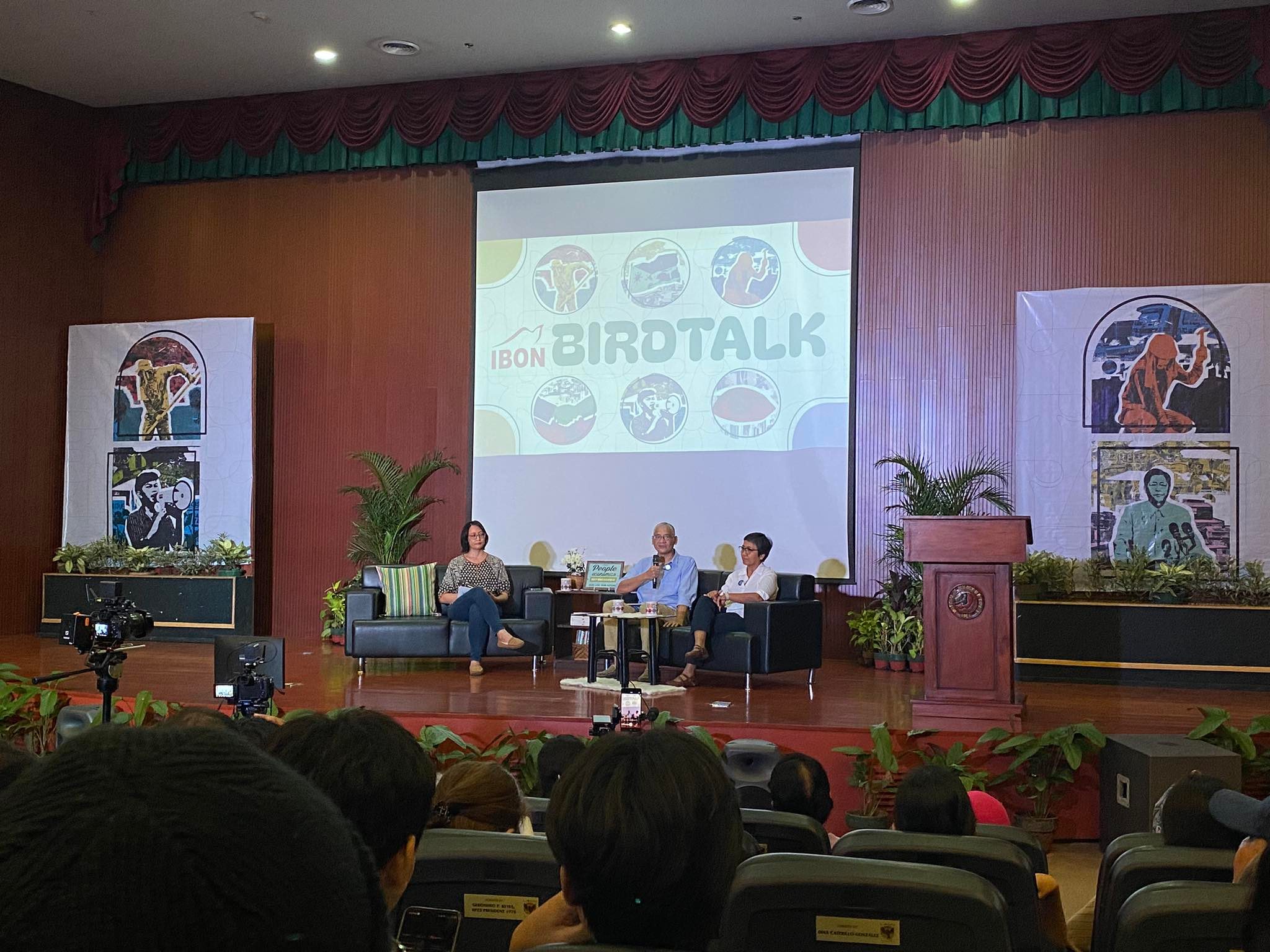
MANILA, Philippines – Foreign investment doesn’t mean development, says IBON executive director Sonny Africa.
In the 2024 Yearstarter BirdTalk organized by IBON Foundation and held on Thursday, January 18, the research outfit’s analysts urged government to craft better labor policies and pursue reforms in its economic strategy that would cater to the needs of Filipinos.
The semi-annual forum gathered advocates in various fields to discuss the overall performance of the Marcos administration and evaluate the government’s claims of economic growth and progress amid persistent problems of job scarcity, poverty, among other issues.
According to IBON’s report, a large percentage of the P5.3 trillion economic budget in 2023 was allotted to infrastructure development, in line with Marcos’ goal to continue and expand the Golden Age of Infrastructure of the Philippines. IBON said this leaves behind the development of basic needs such as health, housing, social security, social welfare, employment, and land distribution.
IBON research head Rosario Guzman stressed how government policies encouraging foreign-owned companies to operate in the Philippines could lead to low wages and overall job scarcity for Filipinos.
“This jobs crisis, it’s like the law of supply and demand. It becomes favorable for government to cheapen wages so that it can attract more foreign investments. Wages are low and remain short of what even computes as family living wages across regions,” Guzman said.
To address job scarcity, Africa proposed job creation through a public works program that can be sustainable and beneficial for the development of communities.
“Ang gobyerno…dapat magcreate ng public works program, dapat ma-guarantee na every Filipino na at least 6-month period may 3 months na trabaho kahit minimum wage lamang… It could be local small-scale community infrastructure, expanding the education system, building housing – lahat ‘yan kailangan ng warm bodies, hindi ito kung anong pinapatanong na trabaho lang, kung hindi may produkto siya na kinakailangan,” Africa said.
(The government must create a public works program, every Filipino must be guaranteed at least a 6-month period with 3 months of work even if only minimum wage… It could be local small-scale community infrastructure, expanding the education system, building housing – all of those need warm bodies, it’s not just any job that’s being asked, instead it has an actual product that’s needed.)
Africa stressed that foreign investment in itself is not necessarily the problem, but the government policies that deal with them. He said that policymakers should also focus on industrialization to further develop local production such as in agriculture.
Guzman supported this by saying that foreign investment can actually be used to support a framework for a national industrial policy that can benefit small-scale industries.
“We need it because we cannot immediately mobilize all domestic resources of all sectors. And I think it boils down to what he [Africa] is saying that we have to lay down the national industrial policy and from there, we can learn the principles of using financing, use of debt, and the direction of that very policy for real industrialization and development for us,” Guzman said.
Shallow economic growth
The calls to craft better economic policy was made after Guzman discussed the overall economic situation in 2023.
She said that the Philippines’ gross domestic product (GDP) of 5.9% in the third quarter of 2023 also benefited foreign investors, especially following the implementation of the Public Service Act which further opened the economy.
Amid these policies, IBON noted that the government has been forcing the phase out of traditional jeepneys under the Public Utility Vehicle (PUV) Modernization Program in partnership with private corporations.
As this economic growth came from an environment of high inflation, Guzman described this as a shallow growth.
“The economy has increasingly lost its capacity to create meaningful and permanent jobs such that alongside the low unemployment rate in November – which they are proud of, is actually the phenomenon of decreasing labor force,” Guzman said in a mix of Filipino and English.
While the Philippine Statistics Authority (PSA) said that there has been a decline of the Philippines’ poverty incidence last year, unemployment fell to 3.6% in November 2023 – the lowest since 2005, according to IBON’s findings. The inflation rate of 3.9% in December is reported to be the lowest since Marcos became president in mid-2022, which is a big drop from the 8.1% in December 2022.
But IBON analysts said the impact of inflation is not the same for all income groups.
“In reality, the average inflation rate of 2023 is 6%…but for the poor, that’s not 6%. Inflation rate for the bottom of the population is 6.7%, which is pushed by an 8.2% food inflation – largely the rice price increase. So, in 2023, the poor was more burdened,” Guzman said in a mix of Filipino and English.
She said there’s also a problem with the government’s current low poverty threshold of P91 per person/per day, where those who are beyond the threshold are no longer considered poor. Household consumption, which is the spending of families, also slowed down in the third quarter of 2023, despite economic growth.
What can Filipinos do
Given the structural problems in the economy, Guzman and Africa urged Filipinos to join civil society organizations to help increase our political orientation and understand more the advocacies of communities on the ground.
“I hope the response will be on the radical response and change, we will not just play around with the situation, instead let’s be part of the on the ground type of mobilization and organization, more in the flesh type of awareness, action, and mobilization,” she said in a mix of Filipino and English.
“I-encourage natin ang maraming tao na isama sa laban na ito, dun manggagaling yung buwelo natin, doon manggagaling ang mga bagong mukha, mga bagong ideya, kung paano isulong ang pagbabago [na gusto natin]… I think this is the moment we rally our forces…sumulong tayo,” Africa added.
(Let’s encourage many people to join this fight, that’s where our momentum will come from, that’s where new faces will come from, new ideas, how to promote the change [that we want]… I think this is the moment we rally our forces…let’s move forward.) – Rappler.com
1 comment
How does this make you feel?
![[In This Economy] Runaway rice prices are making inflation higher than it needs to be](https://www.rappler.com/tachyon/2024/02/tl-rice-prices.jpg?resize=257%2C257&crop=560px%2C0px%2C720px%2C720px)
![[ANALYSIS] A soft and range-bound stock market that has not lost its luster](https://www.rappler.com/tachyon/2024/02/TL-market-soft-range-bound-February-9-2024.jpg?resize=257%2C257&crop_strategy=attention)
![[In This Economy] Looks like PH economy will never get back on track. Here’s the data.](https://www.rappler.com/tachyon/2024/02/20240202-PH-economy-back-on-track.jpg?resize=257%2C257&crop=289px%2C0px%2C720px%2C720px)
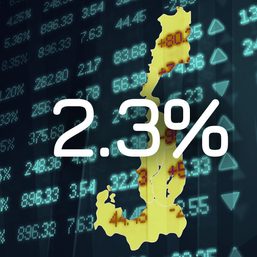

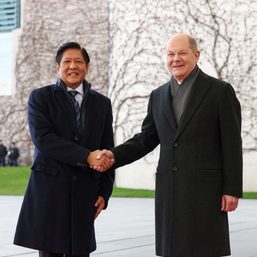





![[In This Economy] Too much hand-waving in the economic charter change debates](https://www.rappler.com/tachyon/2024/03/TL-hand-waving-charter-change-mar-1-2024.jpg?resize=257%2C257&crop=270px%2C0px%2C720px%2C720px)
![[Edgewise] Love me legal tenderly](https://www.rappler.com/tachyon/2024/02/tl-love-me-legal-tenderly.jpg?resize=257%2C257&crop=278px%2C0px%2C720px%2C720px)
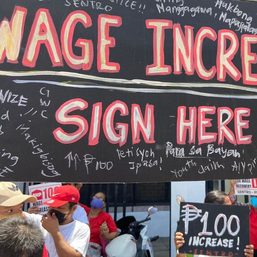

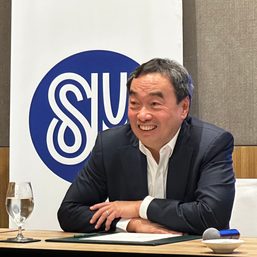
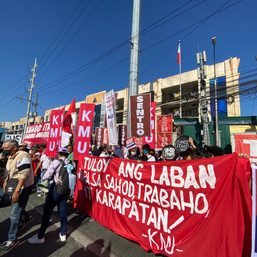
![[Episodes] Fairness to freelancers](https://www.rappler.com/tachyon/2024/02/Freelance-Writers-Guild-of-the-Philippines-rate-guide.jpg?resize=257%2C257&crop=217px%2C0px%2C720px%2C720px)

Thanks to both IBON executive director Sonny Africa and IBON research head Rosario Guzman for their economic analyses, which are full of realistic insights. What saddened me are these insights: 1) President Marcos Jr.’s wrong top priority on Infrastructure, 2) weaknesses of Inflation and Poverty Index data in terms of social relevance, and 3) the effectiveness of joining civil society organizations amid Marcos-Romualdez Disinformation and Repression Machinations.